The Constitution Review Committee of Sierra Leone has published an abridged version of its first draft report, following the conclusion of a major review of the country’s 1991 Constitution.
The review process, which started in 2013 and headed by the experienced Judge – Justice Edmund Cowan, has taken three years to complete.
The report into the changes, contain proposals for an amendment of the Constitution of Sierra Leone – Act No 6 of 1991.
This review is seen as the most progressive and radical shakeup of the country’s Constitution ever conducted, and will shape the way Sierra Leone is governed, since gaining independence in 1961.
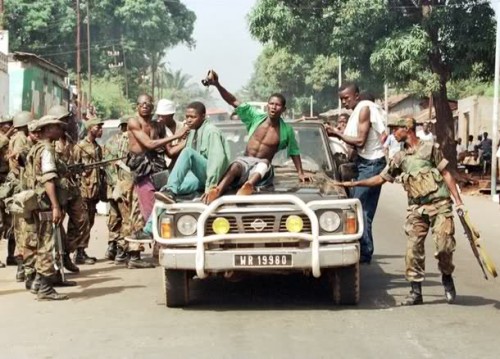 Since 1961 the people of Sierra Leone have experienced no fewer that six major unconstitutional political and military interregnums, bringing much instability, chaos; and in 1992, for more than ten years – massive loss of life and property, from which the country is still recovering.
Since 1961 the people of Sierra Leone have experienced no fewer that six major unconstitutional political and military interregnums, bringing much instability, chaos; and in 1992, for more than ten years – massive loss of life and property, from which the country is still recovering.
The hope is that the new Constitution of Sierra Leone will change all that; build sustainable peace and development. It will clearly clarify the relationships between state and society; how people are governed; and the separation of powers – from the executive to the legislature and the judiciary.
So, by this time in 2018 – after the next general and presidential elections, it will be ‘all change’ for the six million people of Sierra Leone.
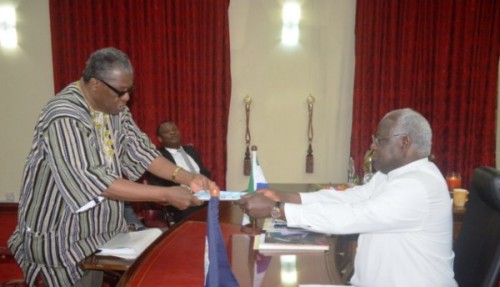 The changes recommended and announced by Justice Cowan (Photo: left and Koroma – right)and his Constitution Review Committee (CRC) yesterday, are now subject to public discussion and ratification through a national referendum, which is unlikely to take place in due time for the celebration of the country’s 55 years of independence on the 27th April 2016. The final report will be submitted to the government of Sierra Leone in March 2016.
The changes recommended and announced by Justice Cowan (Photo: left and Koroma – right)and his Constitution Review Committee (CRC) yesterday, are now subject to public discussion and ratification through a national referendum, which is unlikely to take place in due time for the celebration of the country’s 55 years of independence on the 27th April 2016. The final report will be submitted to the government of Sierra Leone in March 2016.
In it executive summary, the CRC says that its mandate is to review the 1991 Constitution of Sierra Leone, alongside the Peter Tucker’s Constitutional Commission Report (PTCR) that was submitted to the government in January 2008 as a working document.
The CRC was launched by president Koroma after appointing its eighty strong membership, representing different stakeholders in society, including political parties, democratic institutions, NGOs, the media and key independent bodies.
The 1991 Constitution and the 2008 Constitutional Review Commission report included emerging issues and thematic areas which have been deliberated and consulted upon during the last two years of the review process.
And during their two years of work, the CRC carried out extensive consultations with Sierra Leoneans both inside the country and in the diaspora.
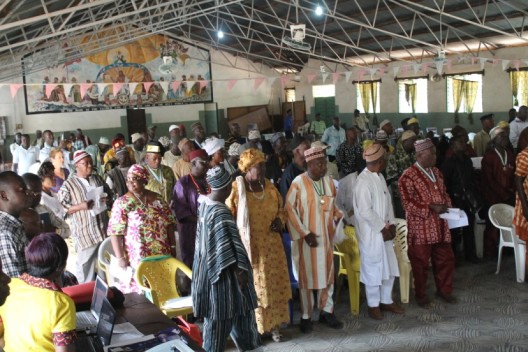 This process it says included consultative meetings, collecting and collating more than a hundred (100) position papers submitted by many CSOs, individuals, social and political groups, parliamentarians, government MDAs, international and local organisations. They also reviewed the Constitutions of seventy-five (75) countries, and took evidence from a wide range of experts, and listened to public opinion across the country.
This process it says included consultative meetings, collecting and collating more than a hundred (100) position papers submitted by many CSOs, individuals, social and political groups, parliamentarians, government MDAs, international and local organisations. They also reviewed the Constitutions of seventy-five (75) countries, and took evidence from a wide range of experts, and listened to public opinion across the country.
So why change the country’s 1991 Constitution?
According to the CRC: “The main goal of the revised Constitution is to strengthen the existing multi-party democracy and to create an open and transparent society.”
Perhaps what is most significant about the changes recommended by the CRC, are the four new chapters that are to be added to the constitution, which it says will help strengthen the existing multi-party democracy and create an open and transparent society. The four new chapters proposed are:
Local Government and Decentralization
“The justification for this proposal is to strengthen decentralisation process of power and devolve it on the districts and at council level.
“Opinions expressed by experts, position papers and public consultations held nationwide were considered and taken into account before drafting the proposed chapter. Also given serious consideration were some strong recommendations obtained from a two-week fact-finding mission undertaken by the CRC between October and November 2015 to Ghana and Kenya.
“The CRC appreciates the views expressed by the Ministry of Local Government and Rural Development (MLGRD) and CRC nationwide consultations with Paramount Chiefs and Local Councillors. The councillors had expressed their opinions and views that they wanted to be part of the decentralised system. They wanted their decisions to be heard and integrated into the proposed new chapter. They wanted proper terms of reference of their role to ensure better governance. As it stands they are currently in charge of development in their communities.
“The CRC thanks the Paramount Chiefs for their position paper relating to the establishment of a House of Chiefs.
“This is in line with the Truth and Reconciliation Commission’s (TRC) report of 2002 and the Lomé Peace Accord that the Constitution should have a separate chapter with the title, Local Government and Decentralisation,” says the CRC.
The main sections of this chapter will be as follows:
- There shall be a system of Decentralized Local Government and Administration for Sierra Leone
- The Local government system shall be based on the principles of Democratic Good Governance
- The Local Government system shall establish the following councils- (a) City council; (b) District Council; and (c) any other council as the system may deem necessary.
- A Local Council shall be the highest political authority in the locality and shall be responsible for the general administration of its locality
- A local council shall consist of-
(a) a General Assembly —
comprising all councillors of the council which shall be headed by a Chairman elected from amongst them; and
(b) an Executive body—comprising of all chairmen of committees, core staff, Mayor and deputy mayor, responsible for the execution of the policies of the council, which shall be headed by a mayor in the case of a City Council and a Chairman in a case of a District Council
- c) a council elected under this section shall consist of not less than 12 members and not less than 30% of whom shall be of one gender
- There shall be a Chief Administrator who shall be secretary to the Council and head of administration in the executive body.
- It was agreed there should be a unified date of Parliamentary and local council elections and the term of office should be five years. Local Council Elections should be non-partisan.
- There shall be a National Local Government Finance Commission, which shall ensure equitable distribution of national resource and shall have such other powers and functions as may be conferred on it by this Constitution or an Act of Parliament.
The National Local Government Finance Commission shall — (a) receive all estimates of revenue and all projected budgets of all local government authorities; (b) supervise and audit accounts of local government authorities, in accordance with any Act of Parliament or Council, subject to the recommendations of the Auditor General; (c) make recommendations relating to the distribution of funds allocated to local government authorities; (d) vary the amount payable to an area periodically based on economic, geographic and demographic variables; (e) prepare a consolidated budget and estimates for all Local Government authorities and after consultation with the Ministry of Finance and Economic Development, which shall be presented to Parliament by the Minister responsible for Local Government before the commencement of each financial year
Citizenship
“There had been some very influential and persuasive reports, submissions and representations made that the revised Sierra Leone Constitution needed to include a new Chapter on Citizenship, defining who is a citizen and how citizenship may be acquired without reference to race or gender.
“The CRC placed weight on the imperative recommendation made by the Truth and Reconciliation Commission (TRC) that the details of acquisition of citizenship, which must be without consideration of race and gender and the principles of rights and responsibilities, should be enshrined in the Constitution. This was endorsed by the Law Reform Commission of Sierra Leone.
“The Constitutional Review Committee (CRC) proposes a new chapter in the revised Constitution to be titled Citizenship. The 1991 Constitution of Sierra Leone has no provision for the definition of citizenship but the word “citizen” is mentioned in various sections throughout that Constitution.
“The CRC also noted this recommendation had been endorsed by the PTCR and a large number of position papers and expert recommendations submitted by several institutions and individuals.
“The CRC took account of the overwhelming support for making a provision for citizenship in the Constitution during the District Level Consultation (DLC) exercise and the Western Area Level Consultation (WAC) meetings; this had been reflected in the reports of these meetings
“The Secretariat also looked at other provisions for Citizenship in other Constitutions including Ghana, Kenya, South Africa and Uganda. It recommends the inclusion of a definition of citizenship within the revised Constitution, which should contain no reference to race or gender,” says the CRC.
The main sections recommended for this important chapter are:
1.Subject to the provisions of this Constitution every citizen shall be entitled to the rights, privileges and benefits of citizenship.
2.Citizenship may be acquired by birth, naturalisation, marriage or adoption
3.A person is a citizen by birth if on the day of the person’s birth, whether in Sierra Leone or not, either the mother or father of the person is a citizen of Sierra Leone.
4.A person may apply to be a citizen by naturalisation if that person –
(a) has been resident in Sierra Leone for a period of ten years ;
(b) has made or is capable of making useful and substantial contribution to the advancement, progress and well-being of Sierra Leone ; and
(c) satisfies the conditions prescribed by an Act of Parliament
5.A person may apply to be a citizen by marriage if that person has been married to a citizen for at least five years.
6.A child who is not a citizen, but is adopted by a citizen, shall be entitled on application to be naturalised.
7.A child found in Sierra Leone who is, or appears to be, less than five years of age, and whose nationality and parents are not known, shall be presumed to be a citizen by birth.
8.citizen by birth shall not lose citizenship by acquiring the citizenship of another country
9.Citizenship shall not be lost through marriage or the dissolution of marriage
10.If a person acquires citizenship by naturalisation, the citizenship may be revoked if the person––
- acquired the citizenship by fraud, false representation or concealment of any material fact;
- has, during any war in which Sierra Leone was engaged, unlawfully traded or communicated with an enemy or been engaged in or associated with any business that was knowingly carried on in such a manner as to assist an enemy in that war;
- has, within five years after naturalisation, been convicted of an offence and sentenced to a fine and imprisonment for a term of five years or longer; or has, at any time after naturalisation, been convicted of treason, or of an offence for which a penalty of at least seven or more years imprisonment may be imposed.
The citizenship of a person who was presumed to be a citizen by birth, as contemplated in section 7, may be revoked if––
- the citizenship was acquired by fraud, false concealment of any material fact by any person;
- the nationality or parentage of the person becomes known, and revealed that the person was a citizen of another country; or the age of the person becomes known, and it is revealed that the person was older than five years when found in Sierra Leone.
- Parliament shall enact legislation:
- prescribing procedures by which a person may become a citizen;
- governing entry into and residence in Sierra Leone;
- providing for the status of permanent residents;
- providing for voluntary renunciation of citizenship;
- prescribing procedures for revocation of citizenship;
- prescribing the duties and rights of citizens; and
- generally giving effect to the provisions of this Chapter.
Lands, Natural Resources and the Environment
“The Constitutional Review Committee (CRC) proposes a new chapter in the revised Constitution to be titled “Lands, Natural Resources and the Environment”. This chapter is sub-divided into 3 sections: Lands, Natural Resources and the Environment. The justification for this sub-division is because they have three distinct definitions and each has its own thematic area.
“Arguments put forward by organisations, position papers and public consultations held nationwide were reviewed, synthesised and incorporated. Inspiration for ideas was drawn from world constitutions, national and international documents, including academic papers and opinions expressed by experts. Also given serious consideration were some strong recommendations obtained from a 2-week fact-finding mission undertaken by the CRC between October and November 2015 to Ghana and Kenya.
“The CRC appreciates the views expressed by the Government of Sierra Leone in The National Land Policy of Sierra Leone The Environmental Protection Agency (EPA), Climate Change, Environment and Forest Conservation Consortium – Sierra Leone (CEFCON –SL), National Protected Area Authority (NPAA), The Office of the Chief of Staff, National Democratic Alliance (NDA),” says the CRC.
Below are the significant issues pertaining to this proposed new chapter identified by the CRC for validation by the people:
1.Land in sierra Leone shall be classified as follows:-
Government Land (inclusive of State and Public Land) and; Private Land (inclusive of land under customary tenure).
Definitions of classification are based on the following general law:-
Freehold Leasehold
a) Government, State, Public Land
All land which belong to the state by virtue of any treaty, concession, convention or agreement, and all lands which have been or may hereafter be acquired by or on behalf of the state, for any public purpose or otherwise howsoever and land acquired under the provision of the public land act and includes all shores, beaches, lagoons, creeks, rivers, estuaries and other places and waters whatsoever belong to, acquired by, or which may be lawfully disposed of by or on behalf of the state. (From National Land Policy)
b) PRIVATE LAND these are land held under customary tenure. Private land refers to land in respect of which sovereign title is held on behalf of a community, by family or an individual, groups of individuals or other entity under any one of the tenure regimes in force in Sierra Leone. All private lands are held on terms subject to the power of compulsory acquisition; subject to the right to take as bona vacantia in case where the owner dies without any heirs or, if held under customary laws, subject to the community or family’s residual right reversion if the owner dies without heirs or abandons the land.
2.Every Citizen has the right to acquire, inherit, transfer or receive as gift any interest in land in Sierra Leone.
3.Non-citizens interest in Land is only limited to Leasehold. (During consultations citizens profoundly recommended cap limitation on size and timeframe for non-citizens interest in land. Also land preservation and conservation use by investors must also protect the environment and local communities/population. (Position papers – National Land Policy, Human rights Commission, 50:50 Group, Dr Joe A.D. Alie also recommended the same)
4.Land Tenure System. This issue continues to pose tremendous division and hence considering various position papers, consultations held with the general public, the CRC brings the matter back to the people for further deliberation.
However CRC plenary agrees to harmonise the two tenure systems pending the outcome of these deliberations
Challenges: Harmonization or Status quo?
Information, Communication and the Media
“The Constitutional Review Committee (CRC) proposes a new chapter in the revised Constitution to be titled “Information, Communication and the Media”. The justification for this proposal is to bring about an independent media.
“Opinions expressed by experts, position papers and public consultations held nationwide were considered and taken into account before the proposed changes. Also given serious consideration were some strong recommendations obtained from a 2-week fact-finding mission undertaken by the CRC between October and November 2015 to Ghana and Kenya.
“The CRC appreciates the views expressed by the Sierra Leone Association of Journalists (SLAJ), media practitioners of both print and electronic, Independent Media Commission (IMC), Media Law and Regulatory Review paper for IMC, MRCG UNDP and UNESCO in their feedback during this consultation process.
“These stakeholders had expressed their strong opinions and views that they wanted to be part of the review process. They wanted their decisions to be heard and integrated. They strongly advocated for the media to be strengthened and make it completely independent in order to allow journalists and media houses to practice decent journalism in line with international best practices,” says the CRC
Key sections of this new chapter includes:
1.The mass media shall at all times be free to uphold the fundamental objectives contained in this Constitution. No body shall own, establish or operate a television or wireless broadcasting station for any purpose whatsoever unless that body holds a licence issued by the IMC.
2.Media freedom and independence are hereby guaranteed but does not extend to—(a)propaganda for war; (b) incitement to violence; (c)hate speech; or (d)advocacy of hatred that—
3.The state shall not—
- exercise control or interfere with any person engaged in broadcasting (Radio, Television, Internet), the production or circulation or dissemination of any publication (newspaper, magazine or any periodical) or the dissemination of information by any medium
- Broadcasting and other electronic media shall have freedom of establishment, subject only to licensing procedures that— are necessary to regulate the airwaves and other forms of signal distribution; and are independent of control by government, political interests or commercial interest.
4.All state/public-owned media shall—(a) be free to determine independently the editorial content of their broadcast or other communications; (b) be impartial; and (c) afford fair opportunity for the presentation of divergent views and dissenting opinions.
5.There shall be an Independent Media Commission in Sierra Leone. This should consist of 11 members.
6.The IMC shall consist of the following members
- One expert in the field of print journalism, nominated by the Sierra Leone Association of Journalists;
- One expert in the field of electronic journalism nominated by the Sierra Leone Association of Journalists;
- One expert in the field of Information Communication Technologies (ICTs), nominated by the Sierra Leone Association of Journalists;
- One expert in the field of telecommunications, nominated by the Sierra Leone Institution of Engineers;
- Two legal practitioner qualified to hold office as Judge of the High Court of Sierra Leone, nominated by the Sierra Leone Bar Association;
- One expert in Mass Communication nominated by a recognised tertiary institution offering communication/journalism studies;
- One person nominated by the Ministry of Information and Telecommunications;
- Two person nominated by the Inter-religious Council of Sierra Leone;
- One representation from the National Communications Commission
The nominees shall be subject to the approval of Parliament.
7.Upon approval by parliament, the commissioners shall elect one person from amongst them to be chairman; provided that no person shall be eligible for election to the position of chairman unless that person has a wide experience as a media practitioner, or is a legal practitioner qualified to hold office as a judge of the High Court of Sierra Leone.
8.The act of parliament shall define the functions and duties of the IMC that shall include promoting a free and pluralist media throughout Sierra Leone.
Other significant Changes Recommended by the CRC
There are three major changes recommended by the CRC, which may please, though not come as a surprise to those strongly opposed to (a) president Koroma’s decision to unilaterally and arbitrarily sack the country’s vice president and his subsequent backing by the Supreme Court; and (b) those calling for an extension of the presidential term limit. They will today say that justice is on their side.
These three changes are that:
1.The President and Vice President should not be removed from office if they lose their political party membership after assumption of office
2.The President and Vice President should only be removed from office in accordance with the procedures set out in Sec 50 and 51 of the 1991 Constitution.
3.The term of office of the President should remain as it is in the 1991 Constitution-Maximum of two terms of 5 years each whether the terms are consecutive or not.
The Sierra Leone Telegraph will in the coming days provide extended analysis of each of these proposed changes , including the following:
 The Office of Attorney General separated from the Minister of Justice
The Office of Attorney General separated from the Minister of Justice
 Local Council Elections to be conducted every 5 year instead of four
Local Council Elections to be conducted every 5 year instead of four
 Local Council Elections to be non-political
Local Council Elections to be non-political
 Presidential, Parliamentary and Local Council Elections to be held on a fixed calendar date
Presidential, Parliamentary and Local Council Elections to be held on a fixed calendar date
 The President is not exempted from personal taxation
The President is not exempted from personal taxation
 The President should no longer be a Member of Parliament
The President should no longer be a Member of Parliament
 A House of Paramount Chiefs to be created. No second Chamber or Senate
A House of Paramount Chiefs to be created. No second Chamber or Senate
 CRC is seeking further information on whether or not the death penalty should be abolished
CRC is seeking further information on whether or not the death penalty should be abolished
 The retirement age of Judges/Justices of the Superior Court of Judicature shifted from 65 to 70 years
The retirement age of Judges/Justices of the Superior Court of Judicature shifted from 65 to 70 years
 The African Negro requirement to be a citizen of Sierra Leone should be eliminated
The African Negro requirement to be a citizen of Sierra Leone should be eliminated
 Stateless children under 5 years found in Sierra Leone should be granted citizenship status
Stateless children under 5 years found in Sierra Leone should be granted citizenship status
 The Chief Justice to be appointed by the Judicial and Legal Service Commission
The Chief Justice to be appointed by the Judicial and Legal Service Commission
 The two land tenure systems in the country should be harmonized
The two land tenure systems in the country should be harmonized
 Members of Parliament should only be qualified for pension and gratuity after serving two consecutive terms as MPs.
Members of Parliament should only be qualified for pension and gratuity after serving two consecutive terms as MPs.
 Education, health and right to shelter are now justiciable
Education, health and right to shelter are now justiciable
On the whole, the changes recommended by the CRC must be supported by the president, government, the ruling APC, opposition parties, civil society groups, and citizens of Sierra Leone.
These constitutional changes are the most radical, yet progressive steps Sierra Leoneans will ever take towards equality, inclusiveness, justice and democracy, since gaining independence in 1961.

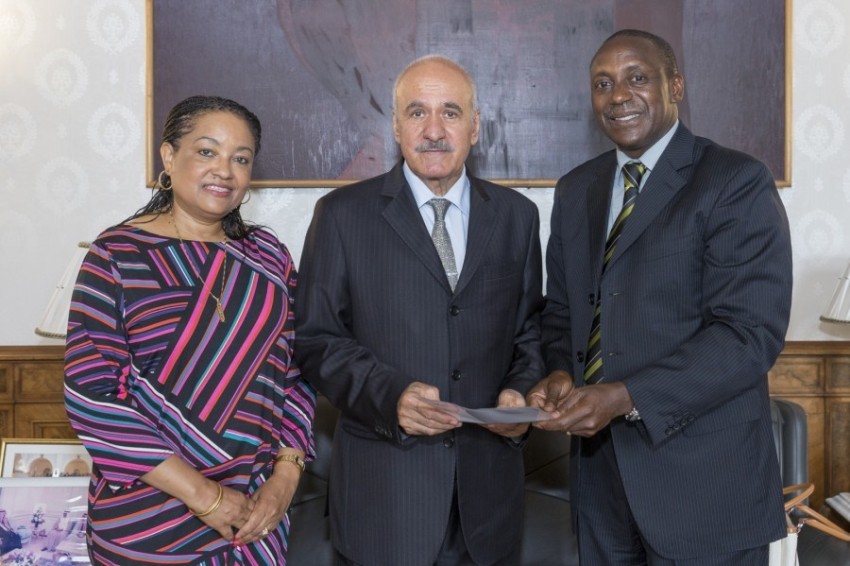
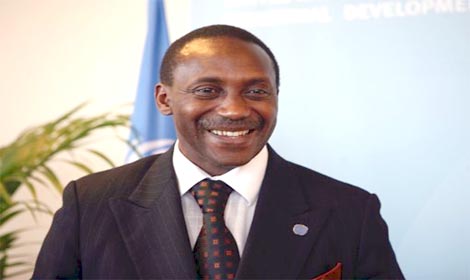
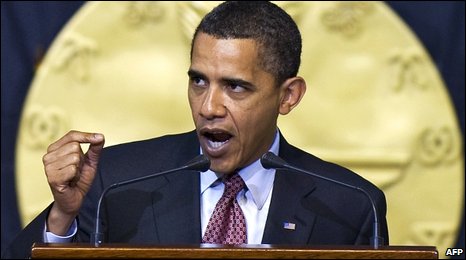
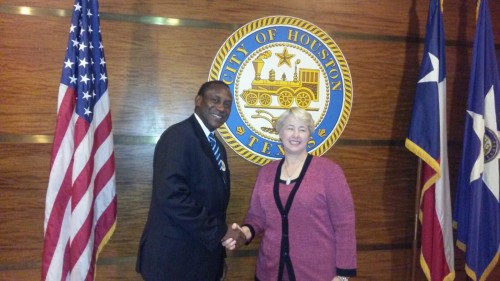




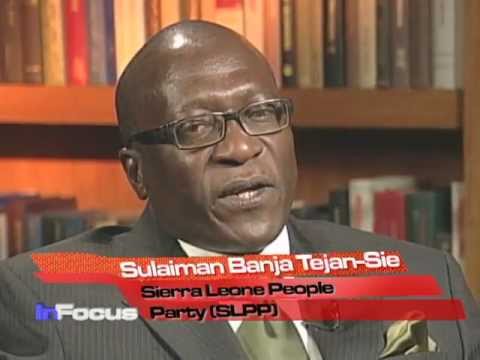
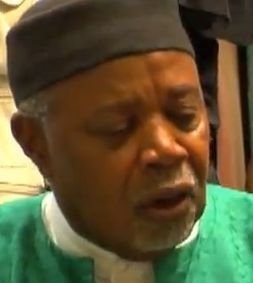
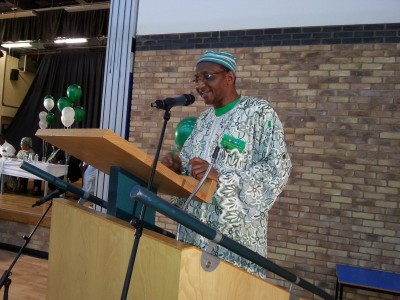




 The Office of Attorney General separated from the Minister of Justice
The Office of Attorney General separated from the Minister of Justice